Graduation and Beyond
As an ABE major, you’ll graduate with a degree from The Grainger College of Engineering. You'll be prepared for careers as project, test, reliability, civil, environmental, mechanical design, product, agricultural, design, and biological engineers. Our graduates work with Fortune 500 companies, consulting firms, academia, government agencies, non-profit groups, and research institutions. The average starting salary for our ABE graduates is $82,000.
Areas of Employment
- Biological Systems Automation
- Bioprocessing
- Ecological Modeling
- Environmental Consulting
- Enzyme Development and Production
- Food Engineering
- Off-Road Equipment Design and Testing
- Precision Agriculture
- Renewable Energy
- Sustainability
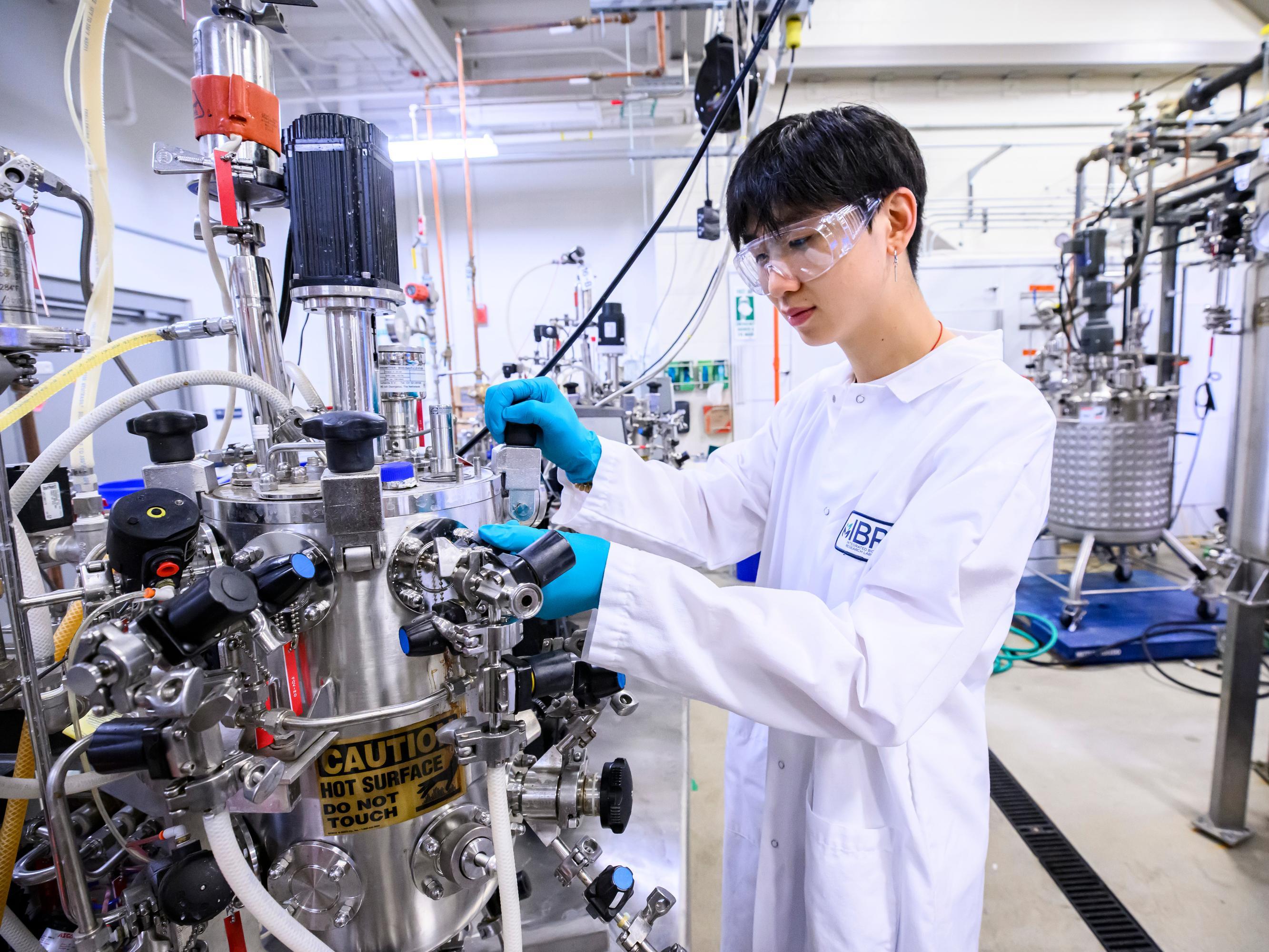 Graduates design and develop equipment and systems for the processing of food for human and animal use, biofuels, and other biological materials. Utilization of agricultural and biological materials presents unique engineering challenges to sustainably convert these natural resources into products needed by society. Examples include designing bioprocesses to convert cereal crops into food ingredients that optimize human and animal health and processing designs to convert biological materials into fuels and biochemicals while minimizing their environmental footprint.
Graduates design and develop equipment and systems for the processing of food for human and animal use, biofuels, and other biological materials. Utilization of agricultural and biological materials presents unique engineering challenges to sustainably convert these natural resources into products needed by society. Examples include designing bioprocesses to convert cereal crops into food ingredients that optimize human and animal health and processing designs to convert biological materials into fuels and biochemicals while minimizing their environmental footprint. 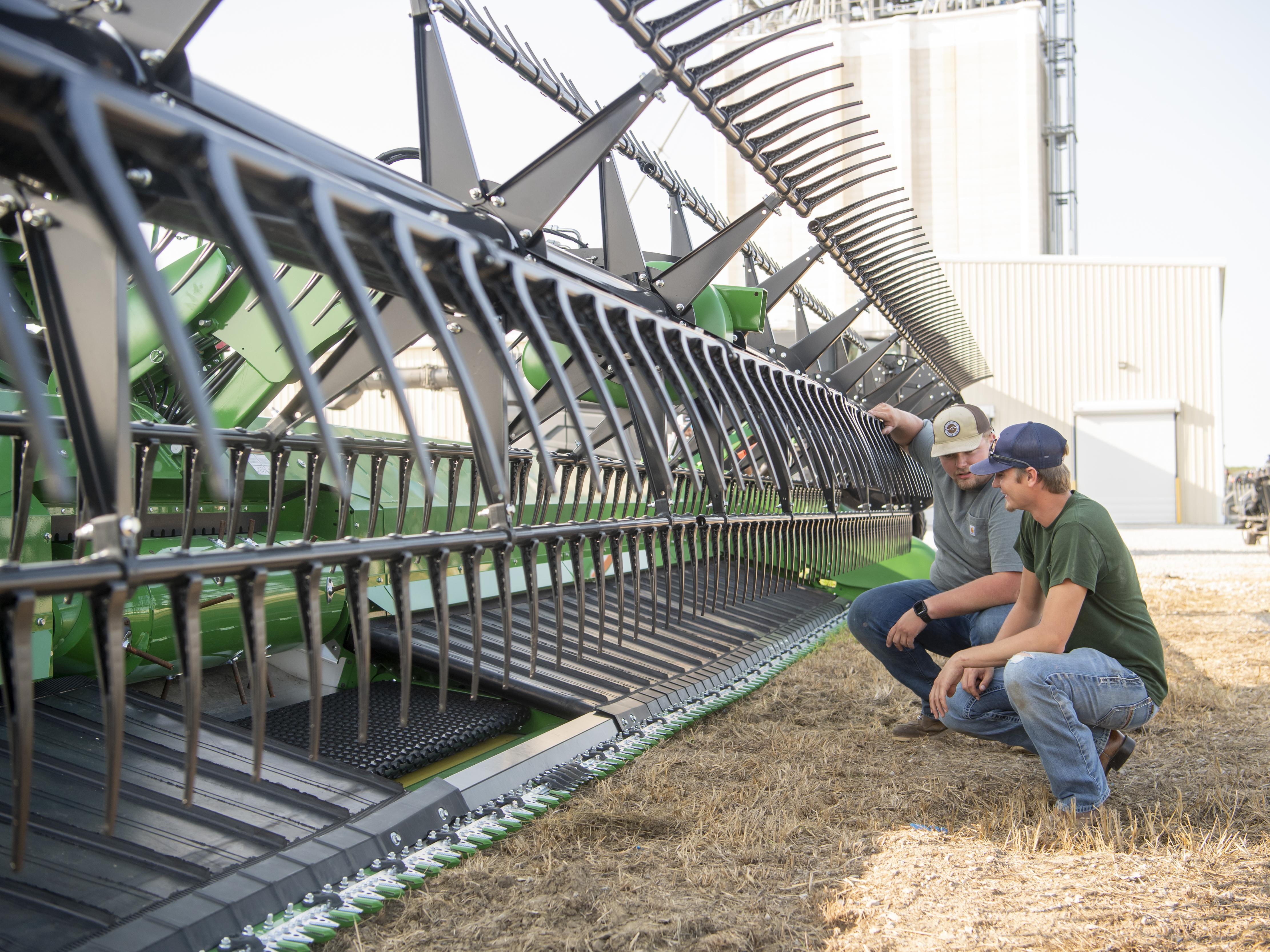 Graduates design, manufacture, and test equipment and control systems for off-highway vehicle industries, including agriculture, construction, and mining. These vehicle and equipment systems must be designed to operate in surroundings that present unique challenges for operating efficiency, safety and environmental impact.
Graduates design, manufacture, and test equipment and control systems for off-highway vehicle industries, including agriculture, construction, and mining. These vehicle and equipment systems must be designed to operate in surroundings that present unique challenges for operating efficiency, safety and environmental impact.  Graduates design renewable energy systems, using solar, wind, biological, and geothermal resources.
Graduates design renewable energy systems, using solar, wind, biological, and geothermal resources. 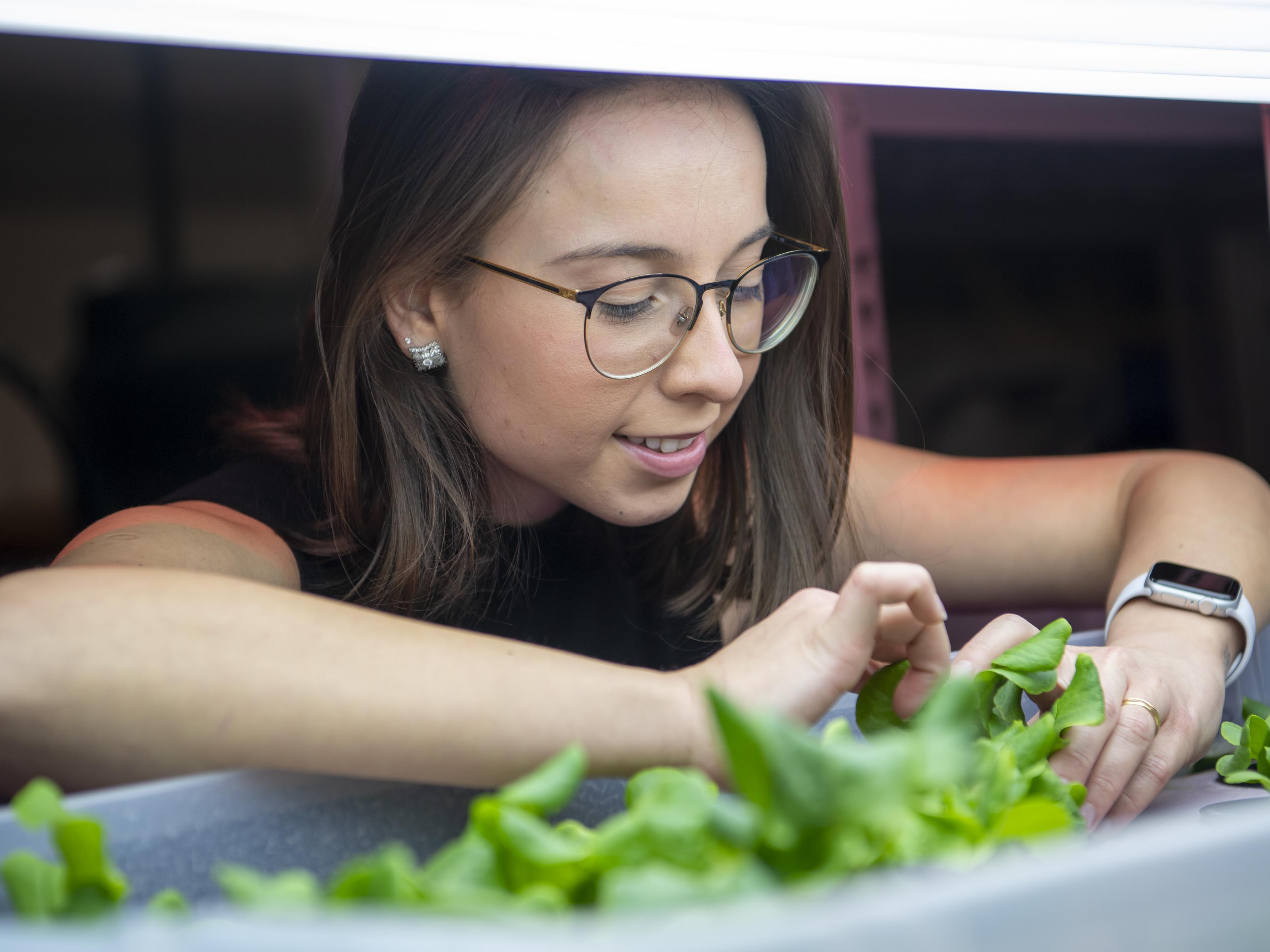 Graduates design sustainable systems to manage and conserve soil and water, control erosion and sediment, improve water quality, and minimize pollution.
Graduates design sustainable systems to manage and conserve soil and water, control erosion and sediment, improve water quality, and minimize pollution. 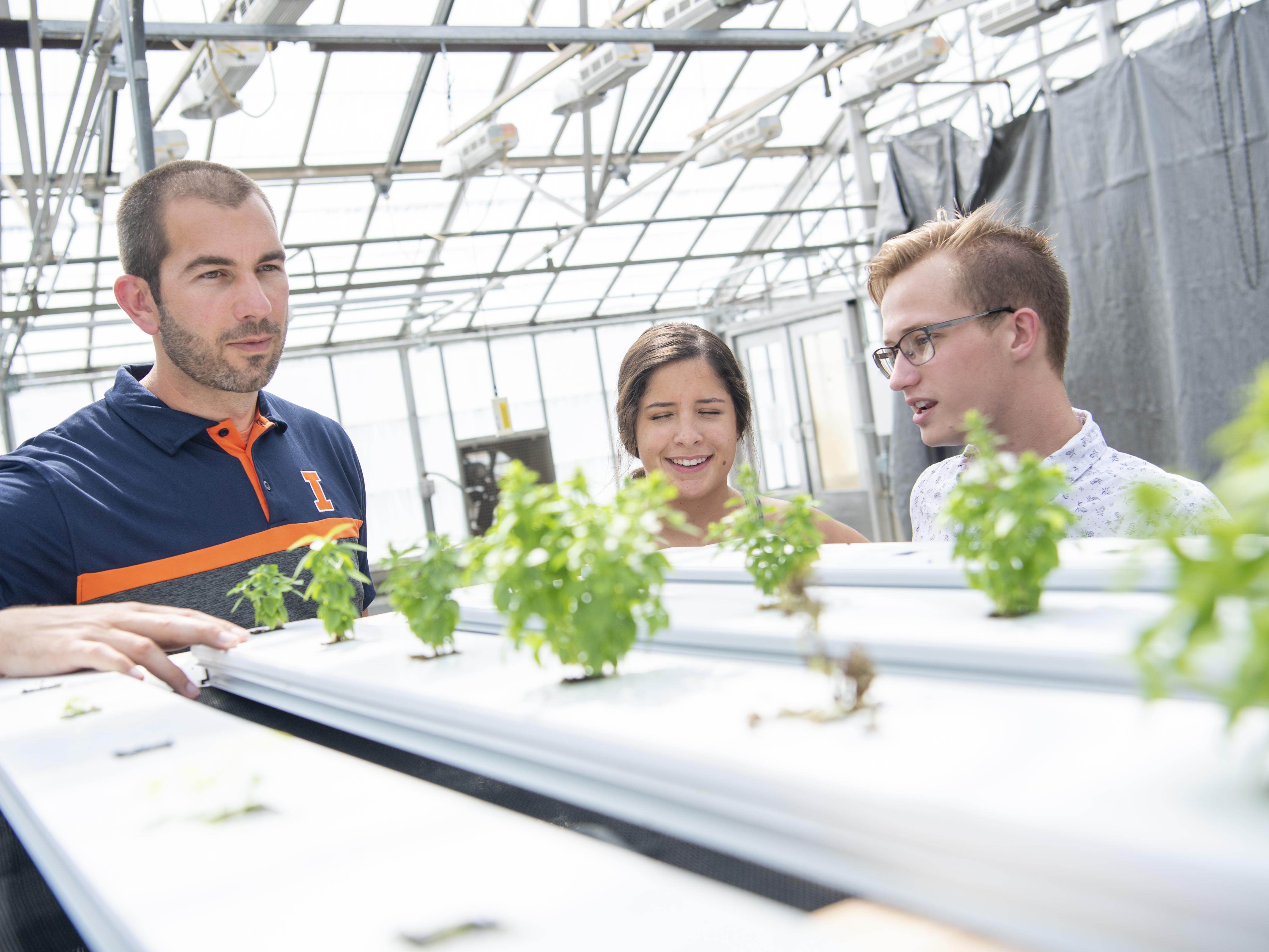 Graduates design, manage, and restore sustainability and resilience in natural and urban environments, integrating automation and environmental control while applying principles of ecology and conservation.
Graduates design, manage, and restore sustainability and resilience in natural and urban environments, integrating automation and environmental control while applying principles of ecology and conservation.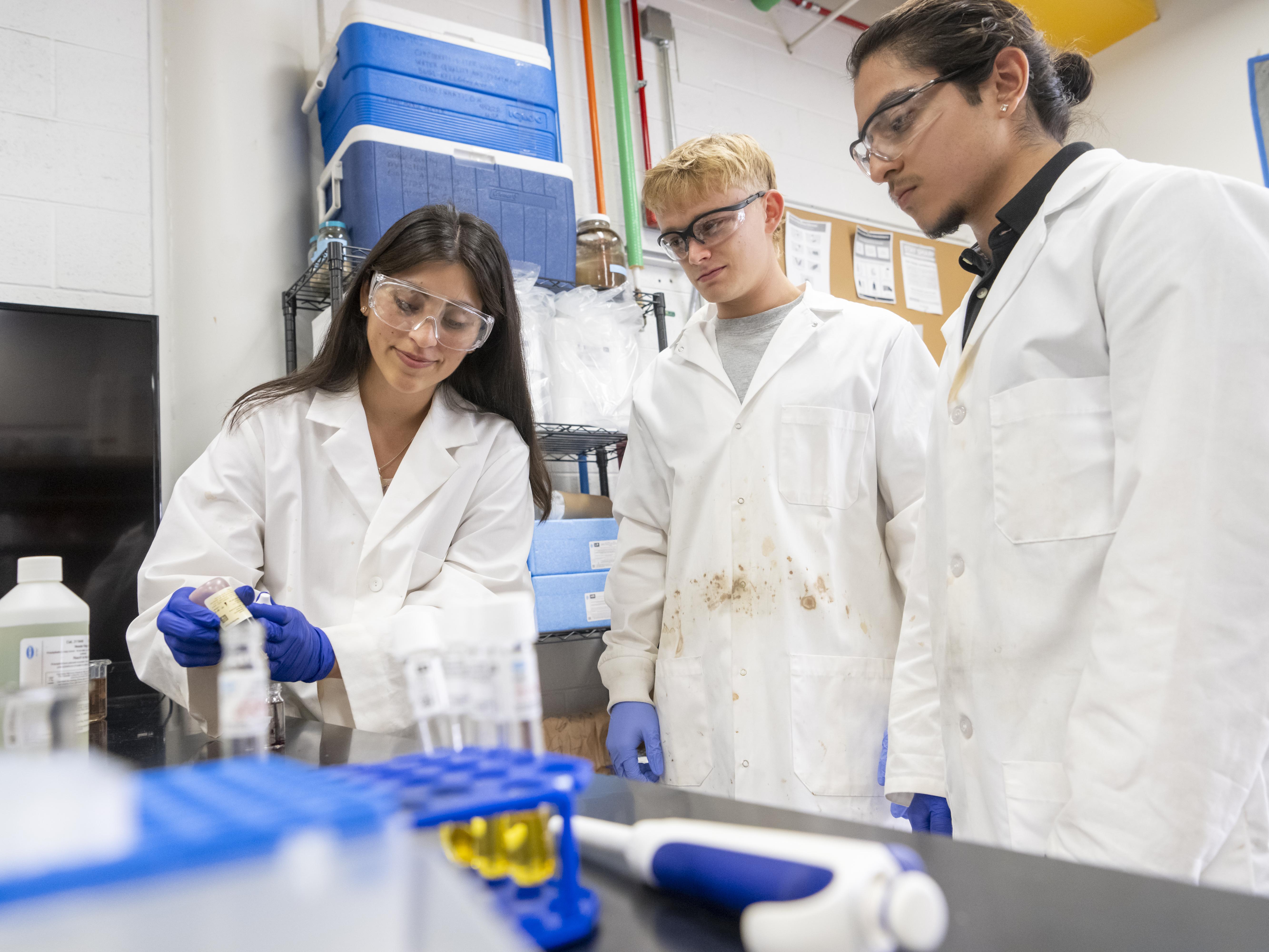 Graduates apply engineering principles to improve organisms by introducing new capabilities vital to food, energy, water, agricultural, and environmental sectors.
Graduates apply engineering principles to improve organisms by introducing new capabilities vital to food, energy, water, agricultural, and environmental sectors.